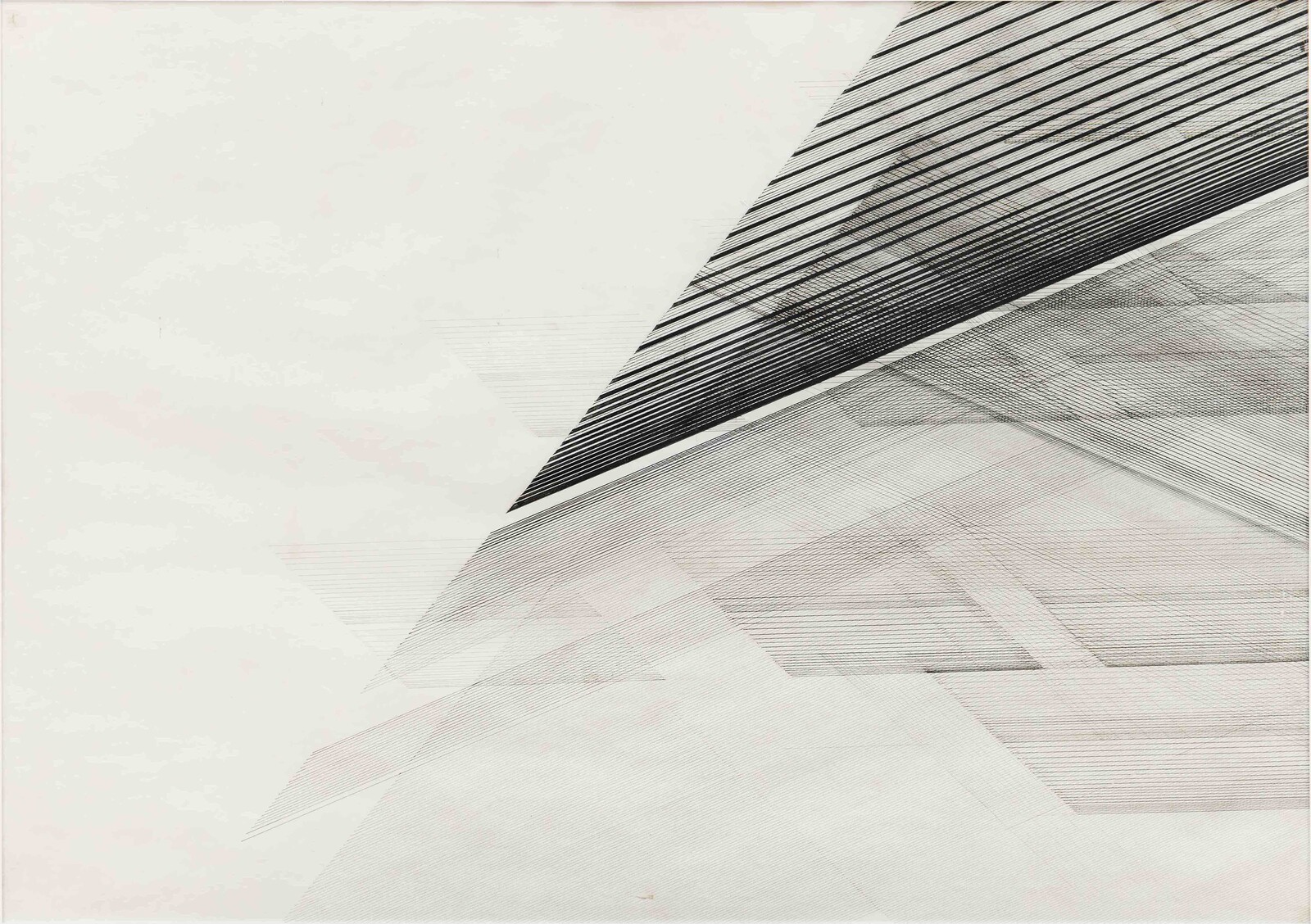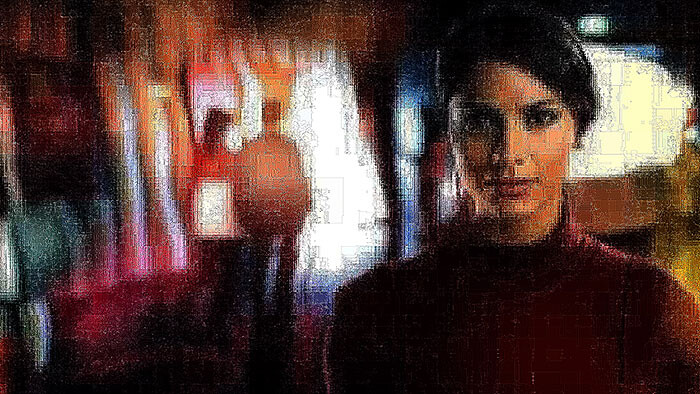Categories
Subjects
Authors
Artists
Venues
Locations
Calendar
Filter
Done
June 9, 2023 – Review
Nasreen Mohamedi’s “The Vastness, Again & Again”
Stephanie Bailey

In 1964, Nasreen Mohamedi, who moved to Mumbai from Karachi three years before Partition, wrote about the experience of continuous conflict. “I sit here and try and find a unity,” she wrote in her diary, “not between religions but between people and people.” The artist had returned to India the previous year from Paris, where she studied lithography following her first solo show at Gallery 59 in Mumbai’s Bhulabhai Desai Memorial Institute. A black-and-white photograph showing Mohamedi in her studio is displayed among others in “The Vastness, Again & Again,” curated by Puja Vaish at Mumbai’s Jehangir Nicholson Art Foundation. In the image, dated ca. 1959–1961, Mohamedi sits among abstract paintings resembling those she made in the 1960s (she rarely dated or titled her work). One such composition in “The Vastness” is an abstract blue-scale oil on canvas impression of what resembles a hazy waterside structure and its reflection, recalling the palette knife and roller compositions of V.S. Gaitonde, with whom Mohamedi shared an affinity for abstraction, Zen Buddhism, and Paul Klee.
An untitled 1966 canvas by Gaitonde, of grey-scale marks on a blue horizon, is among the few pieces by Mohamedi’s contemporaries curated into this multi-dimensional reflection on the …
February 20, 2012 – Review
The Otolith Group’s "Westfailure"
Gitanjali Dang

Our sense of gravity and orientation is controlled by a little something in our ear. The Otolith Group—Anjalika Sagar and Kodwo Eshun—derives its name from this inner ear doodah. So it’s not too far fetched to suggest that ears guide the group’s visual art practice. And if hearing is important, critical hearing is even more so. The faculty of critical hearing enables the artist to weed out the feedback generated by the debris of failed systems. In other words, the otolith is what Ernest Hemingway would call “a built-in bullshit detector.”
“Westfailure,” the London-based duo’s first solo in Bombay, takes its title from British economist Susan Strange’s essay “The Westfailure System” (1999), in which she argues that Westphalian sovereignty has been entirely incapable of stymieing financial, ecological, and humanitarian meltdowns. A great deal of the Otolith Group’s work has entailed the interruption of Orwellian newspeak with “glitchspeak”—and “Westfailure” aspires to the same.
The Westphalian sovereignty, proposed in the 17th century in Westphalia, Germany, is one such systemic impasse. The peace treaties that emerged initiated a new political order. The sovereign nation-state anchored in territoriality and the absence of unsought external interventions in the domestic realm was key to the new politics. The …